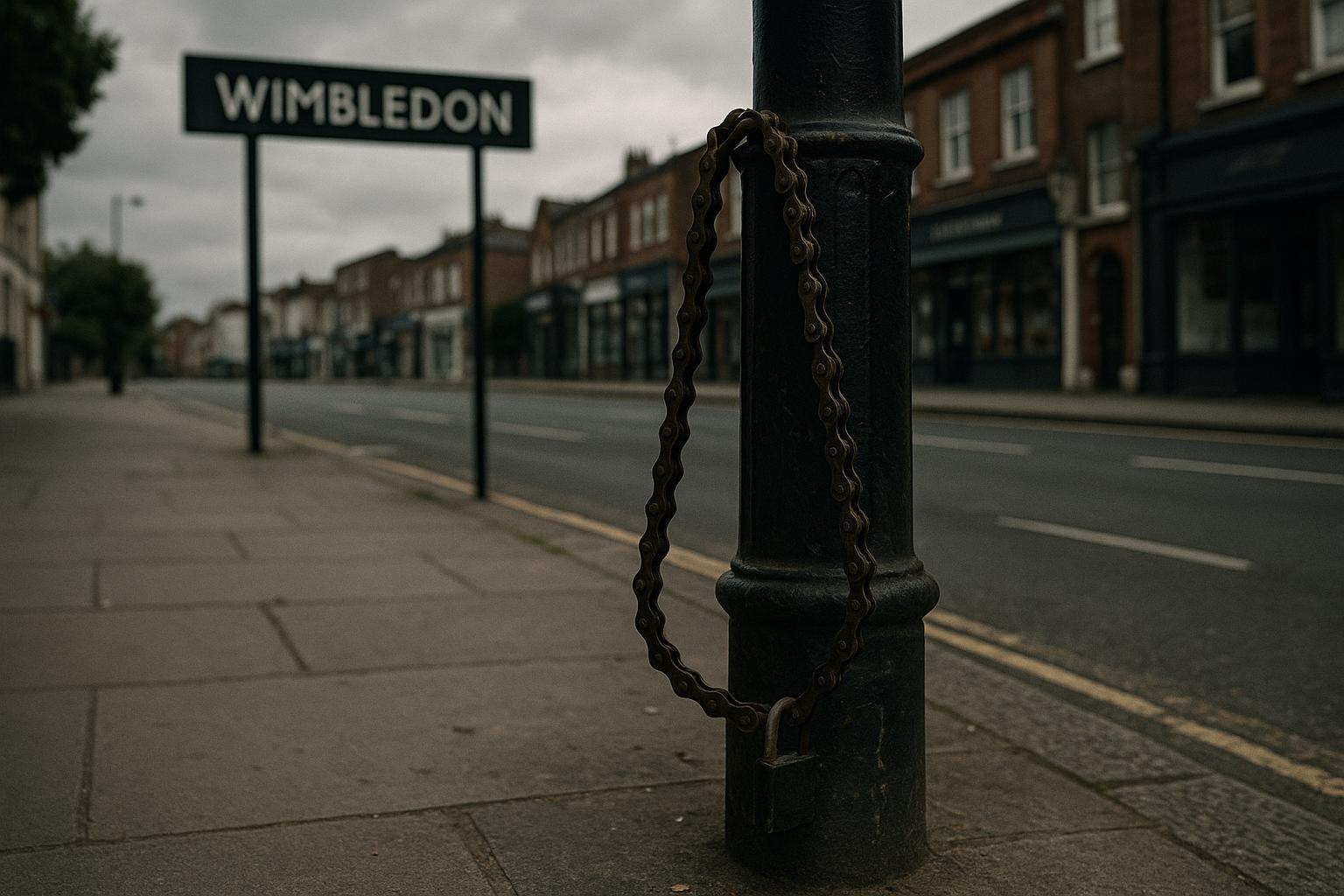Cyclists in South London, particularly in Wimbledon, are facing growing concerns over an escalating bike theft problem that authorities appear ill-equipped or unwilling to effectively tackle. Paul Kohler, the local MP and councillor for Wimbledon Town and Dundonald ward, has voiced frustration over the rising number of bike thefts and the lack of police follow-up, citing a disheartening culture in which such crimes are often treated as minor or not investigated at all. This sentiment is echoed by Liberal Democrat Leader Sir Ed Davey, who visited Wimbledon Common with Kohler to spotlight the issue, describing it as "effectively decriminalised" due to the very low charge rates—fewer than one in ten cases in London proceed to legal action.
The problem has intensified following an announcement by British Transport Police in early October that they will no longer investigate bike thefts outside stations if the bike has been unattended for more than two hours. This policy shift has caused alarm among cyclists who rely on leaving their bikes at stations to catch trains or buses, further discouraging the use of bikes as a sustainable transport option. Local resident Iain Wadie shared his personal experience of having a custom-built bike stolen and receiving no police follow-up, highlighting the frustration felt by many who see their stolen property vanish without consequence.
In response, the Liberal Democrats have called for a national crackdown dubbed Operation Bike Bait. The initiative proposes deploying GPS-equipped bikes in theft hotspots to track and apprehend organised crime gangs responsible for much of the theft. Sir Ed Davey emphasised the need for better intelligence sharing among boroughs, saying that without coordinated effort, these theft networks cannot be disrupted. The call for this targeted policing approach is backed by data indicating that only 2% of bicycle thefts were solved last year, painting a grim picture of enforcement inefficacy that undermines efforts to promote active travel.
Alongside policing reforms, Kohler advocates for a multifaceted approach involving increased CCTV coverage, enhanced surveillance, and improved cycle storage facilities around transport hubs and town centres. He criticises Merton Council for its slow progress on cycling infrastructure, describing the borough’s cycle routes as “confusing and fragmented.” Kohler stresses the importance of a clear and comprehensive map of cycling routes to encourage safer and more accessible cycling throughout Merton, lamenting the council’s inability, so far, to move beyond piecemeal measures despite repeated promises.
Echoing these concerns, recent consultations on Merton’s draft Walking and Cycling Strategy reveal that safety fears, especially the danger posed by traffic, are a major barrier to cycling. Around 26% of residents surveyed identified this as their principal worry. Campaigners and local councillors have noted that some parts of the borough, such as Morden, remain "hostile" to cyclists due to poor infrastructure and heavy traffic, causing some elected officials themselves to avoid cycling through these areas during busy periods.
Merton Council, in response, highlights its ongoing efforts to improve cycling safety and accessibility. It is actively doubling the number of secure bike hangars, providing residents the facility to store over 600 more bikes securely. The council has also introduced designated e-bike parking zones with Transport for London funding, boasting a high compliance rate among users after these were rolled out earlier in the year. Furthermore, the council is consulting the public on its Walking and Cycling Strategy until December 2025, which proposes a comprehensive network of safer walking and cycling routes, including quieter cycle routes on less-busy backstreets aimed at less confident cyclists.
The council has taken additional steps to manage issues specific to e-bikes, partnering with operators like Lime to tackle obstructions caused by anti-social parking. Initiatives include deploying parking wardens, expanding rider education, and creating GPS-enforced no-parking zones. These measures, alongside infrastructure improvements, form part of Merton’s broader ambition to promote sustainable transport, reduce emissions, and improve public health.
While local initiatives proceed, the experience in the City of London offers a valuable example of success through targeted policing. After two members of an organised bike theft gang were jailed for stealing over £100,000 worth of bicycles, reported thefts in the area dramatically declined. This case demonstrates the potential impact that strategic enforcement and crime disruption can have in reducing bicycle theft, highlighting the need for similar approaches in South London and beyond.
The challenges faced by Wimbledon and Merton underscore a wider issue across London, where bike thefts, insufficient infrastructure, and enforcement gaps threaten the shift towards greener transport. Without coordinated action combining policing, local authority infrastructure improvements, and community engagement, anxiety over bike security risks discouraging a key sustainable travel mode just as it is needed most.
📌 Reference Map:
- Paragraph 1 – [1] (MyLondon), [2] (Lib Dems)
- Paragraph 2 – [1] (MyLondon), [2] (Lib Dems)
- Paragraph 3 – [2] (Lib Dems), [1] (MyLondon)
- Paragraph 4 – [1] (MyLondon), [2] (Lib Dems)
- Paragraph 5 – [1] (MyLondon), [4] (Merton Council), [5] (Merton Council)
- Paragraph 6 – [1] (MyLondon), [4] (Merton Council)
- Paragraph 7 – [7] (Merton Council), [6] (Merton Council)
- Paragraph 8 – [3] (City of London Police)
Source: Noah Wire Services
